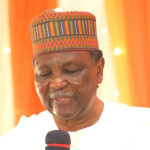Worried by the seemly insurmountable multifaceted economic insecurity, political crisis and several other forces crippling Nigeria’s economy, the School of Arts and Social Sciences, Federal College of Education (FCE), Special Oyo, organised a five-day scholastic discourse for academia drawn from various tertiary institutions in the country to overview the multifaceted challenges facing Nigerians and what should be done to rectify it.
At Tim Obani Hall in the college during the opening ceremony of the 16th Biennial National Conference, Dean, School of Secondary Education (Arts and Social Sciences Programmes), Mallam Muhammed Yusuff stated that the deteriorating economic condition in Nigeria and insecurity in the country made the school to organize the forum to deliberate on the theme: ‘Humanities in the face of Multifaceted Challenges in Nigeria: Implication for engagement and survival’, as part of the activities scheduled to mark this year’s national conference of the school
Speaking in the same vein, the Deputy Provost of the college, Mrs M.A Ambimbola described the theme of the conference as apt, emphasizing that the poor economic and insecurity situations called for urgent attention for its rectification for the nation to move forward.
ALSO READ FROM NIGERIAN TRIBUNE
The chairman of the occasion, former Executive Director, Technical Services, Nigeria Communication Satellite, Abuja, Kaseem Raji, in his address admitted that Nigerians are facing multifaceted challenges that should not be treated with levity to save the country from total meltdown.
He noted that the theme of the conference is a topical issue for intellectuals to dissect and discourse with a view to bequeathing solution-driven strategies for combating the challenges be-deviling Nigeria and humanity in general.
According to him, youth empowerment based on Information Communication Technology (ICT) is the way to go to address the economic and insecurity situation in the country. He observed that it is high time Nigeria diversified its economy urgently for self-sustenance.
He said: “Nigeria could become an economic power-house and command the attention of the international community only if it can give proper attention to science and technology education for production of goods and services. Nigeria must learn to reward hard work and creativity, without which the economy will continue to shrink.”
Professor Kehinde Ayantayo, from the University of Ibadan who delivered the keynote address at the event, attested to the fact that Nigeria’s problem is a man-made challenge varying from corruption to insecurity among others, which he said were resolvable by humanity itself. He declared that Nigeria must review its moral and cultural values.
He said: “For Nigeria to get out of its problems it will have to review its moral value and return to its cultural orientation. More so, the Nigerian school curriculum from basic to tertiary level should be reviewed to address the humanity problems confronting Nigeria as a country. The proposed curriculum should reflect the 21st-century science and technological needs of our society for the economy to thrive favourably.”
He noted that humanity courses should be science and technology-driven and that there should be synergy among all the courses in the tertiary institutions in the country for skill development process. He said the development would make all courses relevant in the nation-building process.
Speaking in the same vein, Deputy Provost, Lagos State Cooperative College, Lagos, Dr Adebosin Gbadebo asserted that Nigeria must review the inequality in the income distribution pattern pervading Nigeria’s economic system. He condemned the poor salary of junior workers in Nigeria, as he called on the government and all employers of labour in the country to review upward the salary of junior workers as part of efforts to sanitise and reform the system.






